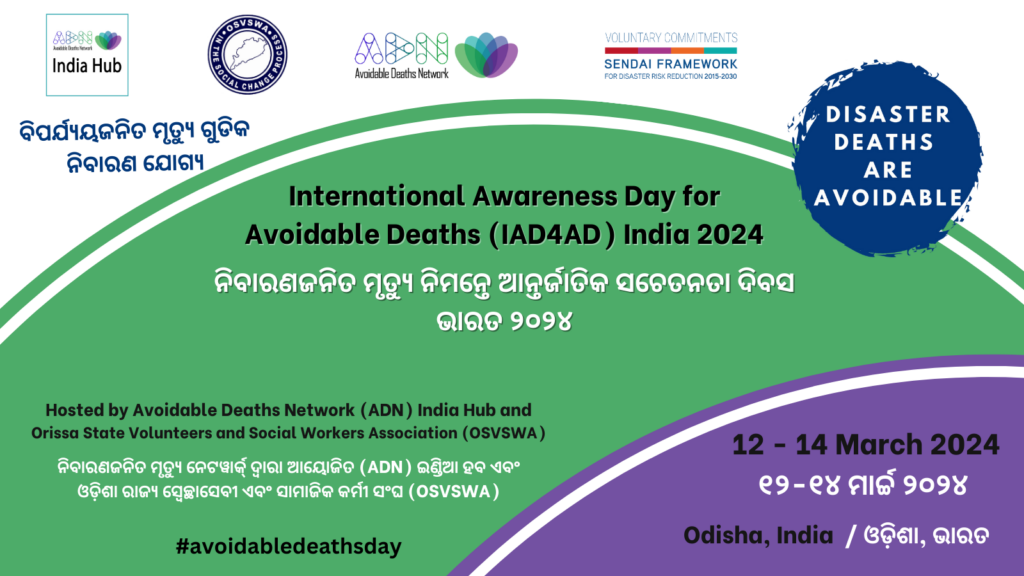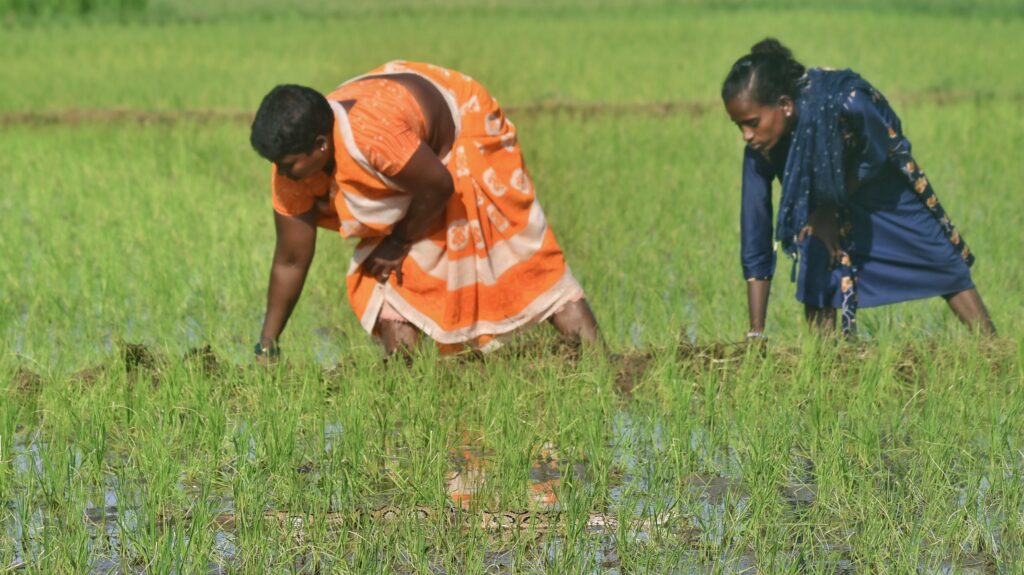By Dr. Shakuntala Pratihary
“Jātasya Hi Dhruvo Mṛityu” – an important Indian philosophical statement explains the narrative that death always follows birth. But if the reason for death is occurring at a pre-matured stage of human life, then the loss is a tormenting reality. This agonizing materiality is happening to millions of people throughout the world where untimely deaths are happening under conditions that could have been avoided with the provisioning of timely and effective early warning, building capacities and provisioning of infrastructural services.
Avoidable deaths include preventable and treatable deaths that need conditions for the provisioning of an effective public health care system and timely interventions. In the case of developed countries, the lifestyle and approach towards life are emerging as disasters whereas, in the case of developing societies, certain socio-behavioural norms, lack of awareness and basic skills get added with the lack of availability of approachable healthcare facilities, the result is catastrophic for the grieving household.
Pre-matured deaths can be seen as an indicator of the unavailability of an efficient and effective healthcare system as the death would not have happened in the presence of timely and proficient healthcare opportunities.
In this regard Avoidable Death Network (ADN), a global-local membership network of more than 800 individuals and organisations, works in the direction of reducing premature death from disasters triggered by natural and human-induced hazards in developing countries. The purpose of ADN is to create a platform where the issues of premature death pertinent to disasters would be discussed in the public domain and followed by subsequent interventions in public policies to avoid such disasters.

Early deaths can be interchangeably treated as missing economic opportunity for the economy and missing productive labour force for the household. In this context, ADN is organising an International Awareness Day for Avoidable Death (IAD4AD) in India, on 12th March 2024 – a day-long Symposium on Reducing Avoidable Deaths. The focus of this symposium will be on three issues that are silently reducing the human resources of the country and yet have not garnered mass attention. The purpose of the symposium is to build a discourse around avoidable death and make people aware of such incidents having a critical impact on their lives. Deaths arising out of snake bites, drowning and maternal health are the important focal points of 2024 ADN’s symposium.
Deaths due to snakebites are a major killer in India, especially during the rainy season. People during outdoor activities such as farm labour or children playing outdoor games are vulnerable to snake bites. On an average, every year around fifty thousand Indians die due to reptile attacks but there is hardly any public discourse built around this issue. The health care facilities in the rural areas prone to snakebite accidents, rarely possess the facilities to administer anti-venom to the victims. Public awareness regarding this issue is very minimal and that is why it does not attract the attention of the policy makers.

Similarly, drowning death is surging high in India and it needs immediate public attention. As per the “Regional Status Report on Drowning in South-East Asia” published by the World Health Organisation in 2021, India suffered 48,774 deaths due to drowning and thirty per cent of these victims were children in the age group of 4-15 years of age. Drowning is slowly emerging as an epidemic but can be preventable by having a comprehensive as well as strategic approach. Awareness campaigns, mass education, infrastructure development and strengthening emergency response are certain key points to reduce the deaths related to drowning. ADN is committed to bringing on board these strategic key points to draw the attention of the policymakers to reduce drowning deaths and save lives before it being snatched away by avoidable reasons.

Another prevailing premature death corresponding to gender specification in India is maternal mortality. This early death of women is the outcome of societal injustice against girl child by having early marriage, undernourished/malnourished body of the childbearing mother, inaccessibility to health care facilities by the pregnant women in rural areas and negligence of pre-natal & post-natal care. ADN is focusing on reducing the maternal mortality rate which is as high as ninety-seven per one hundred thousand live births. Maternal mortality can be treated as a silent disaster having a cascading effect on the households and ADN is devoting its engagement with the policymakers to reduce the scale in coming years through two low-budget reproductive health (RH) kits called Facility and Crisis RH Kits.
Death is inevitable, but life should be fully mature enough to embrace death with wholeheartedness. Premature death is not only grieving for the family and economic loss for the economies; it is also a gross violation of human rights that the person could not survive up to the age of life expectancy at birth. ADN is attempting to reduce disaster-led death and ensure life to its fullest possibility for all. This is the most opportune time that we all work together to make this world a better place for all of us.
Author’s Short Bio: Dr. Shakuntala Pratihary is Professor of Practice in Climate Change and Sustainable Development at Sri Sri University and Steering and Management Committee of the ADN India Chapter.
